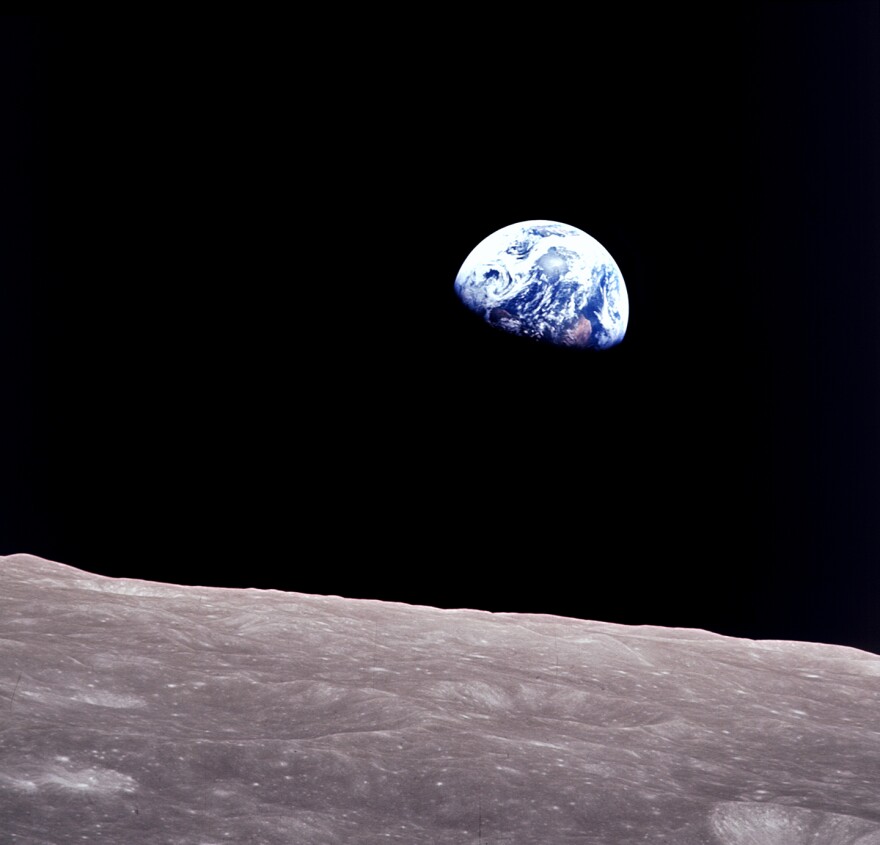Every so often events spiral out of control, and the world goes mad. In the spring of 1968 a sniper killed Martin Luther King, triggering riots in cities across the country, followed by the assassination of Robert Kennedy. The fighting in Vietnam kept intensifying, and the peace movement turned violent. Then a momentary reprieve arrived, a pause when things made sense again.
Apollo 8 launched on December 21, becoming the first manned spacecraft to orbit the moon. And just as the astronauts passed beyond contact with the Earth, my little sister ran away from home. She was 16.
Right before Christmas I flew back to Virginia from Arizona where I had been studying. I joined my brother, a helicopter pilot on leave for the holidays. John had returned from flying combat missions in Vietnam only to find chaos in the streets. My mother, torn apart with worry, broke the news. Choking back tears she told us, “I have no idea where Meredith has gone or even if she’s alive. She may have been kidnapped or she could be lying hurt in a ditch somewhere.” We suggested waiting a few days since she had always loved Christmas and wasn’t likely to miss it.
When the day came and went with no word, John and I set out to find her. We started making calls, pressuring her friends to talk. After a few days we got the first solid lead and drove straight to the home of a guy who might know something. He claimed to know nothing until he realized how determined we were to find her. She had gone with another girl to New York City, he told us, and he came up with the address of someone there who might have seen her.
An hour later the two of us were driving north under a low ceiling, the air turned thick and yellow. Night came on the New Jersey Turnpike, dark with recent rain, the traffic frenzied. We tunneled under the river and into the big city, two rats in a maze of unfamiliar streets. We found our way to a rundown neighborhood in Manhattan and knocked on an apartment door. A grad student in his late 20s answered and reluctantly let us in. He admitted our sister and her friend had stayed there, but swore he had no idea how young they were. My brother, having spent the last year surrounded by death and destruction, had no patience with his evasions. John let him know not only where he stood legally, but where he stood with us if anything happened to her. His memory suddenly improved, and he provided an address on Long Island. Leaving the apartment we came across a man passed out on the sidewalk. I bent down to make sure he was alive only to hear a mumbled insult. It was New Year’s Eve in The Bowery.
Her friends knew we were coming, so we moved fast. We got to the house early next morning only to find we had missed her by a day. But we came away with a phone number. When I called, Meredith was afraid we would grab her and take her home. Only after I promised we just wanted to talk did she agree to meet. She was determined not to go home, afraid of getting punished and unwilling to give up her independence. But she finally agreed to talk with our parents. I placed the call and handed her the phone. As they assured her all was forgiven, the tears broke loose and she decided to return with us.
During the Apollo 8 mission the astronauts had transmitted a stunning photo of our blue planet suspended above the dead lunar surface. Seeing the Earth as a living planet, whole and undivided, gave people around the world a moment of hope. As we headed back home it felt good. In such a fractured time we had made only a small difference, but it was enough.



